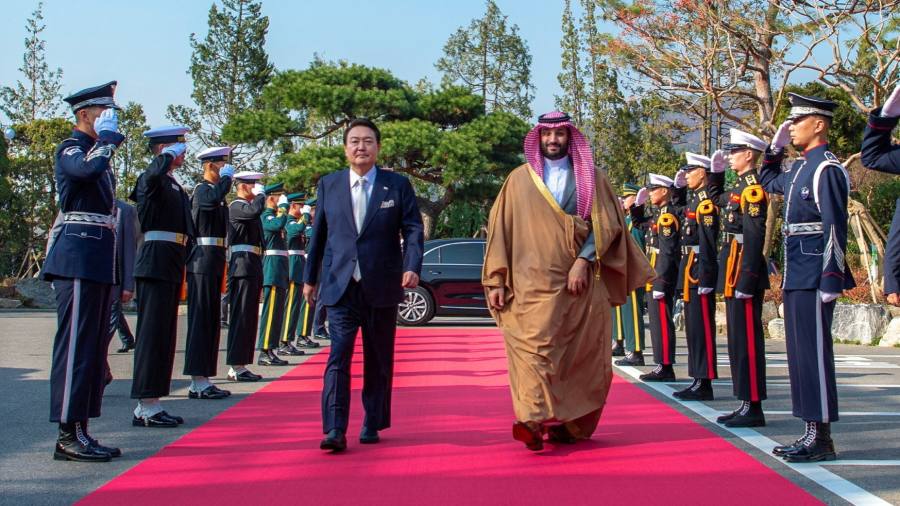
Saudi Aramco has announced a $7bn investment in a petrochemical factory in South Korea, as part of a $30bn package of agreements between Riyadh and Seoul as Crown Prince Mohammed bin Salman forges closer partnerships in Asia.
The deals, including the investment by the world’s biggest oil producer, were announced on Thursday during the first day of a visit to Seoul by Prince Mohammed. Saudi Arabia’s day-to-day ruler is on a tour of east Asia that will also include Japan and Thailand. Chinese president Xi Jinping is expected to visit Saudi Arabia next month.
Saudi Arabia’s investment minister told domestic media that the total value of the deals announced in Seoul was $30bn.
South Korean state energy monopoly Kepco and four other Korean companies also signed a memorandum of understanding with Saudi Arabia’s Public Investment Fund for a $6.5bn hydrogen and ammonia plant in the Gulf kingdom.
Saudi Arabia has been betting on hydrogen despite a limited market for the energy source, with a plant developed in partnership with US chemicals company Air Products expected to go online in 2026. The Korea Times reported that the other plant would be built in Yanbu on the Red Sea and that production would start in 2029.
Korean heavy industry giant Hyundai Rotem also signed a memorandum of understanding with the Saudi government to co-operate on railway infrastructure for Prince Mohammed’s flagship Neom mega-project, a carbon-free city built in a 170km line through the Saudi desert.
South Korean president Yoon Suk-yeol welcomed the investments, describing Saudi Arabia as a key partner for the east Asian country’s economic and energy security.
“In particular, he said he would like drastically to strengthen co-operation with South Korea in the areas of the defence industry, infrastructure and construction,” said a South Korean presidential spokesperson.
South Korea, a close ally of the US, imports almost 93 per cent of its energy and natural resources, according to government figures, with approximately 60 per cent of its oil imports sourced from the Middle East.
On a visit to Seoul earlier this month, Saudi investment minister Khalid al-Falih urged South Korean start-ups to use his country as a “platform” to enter the global market, citing the popularity in Saudi Arabia of Korean culture, fashion and cosmetics.